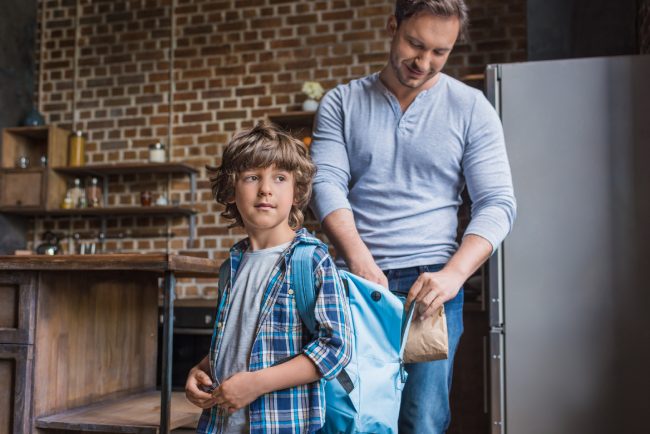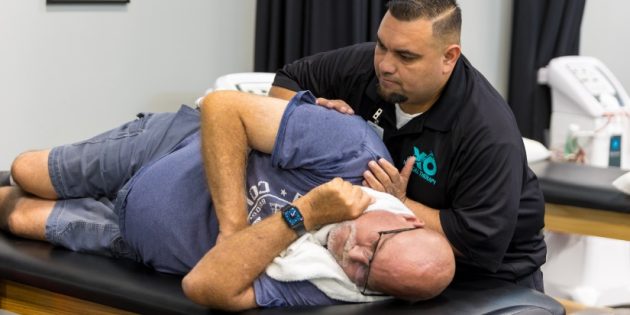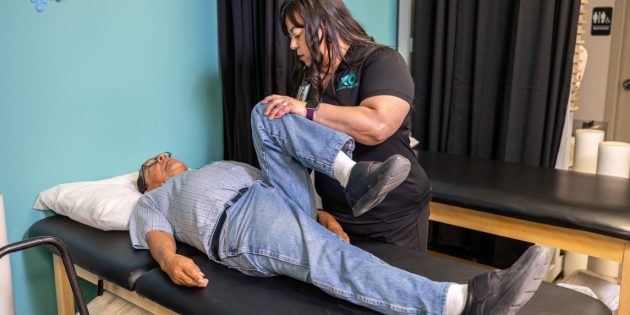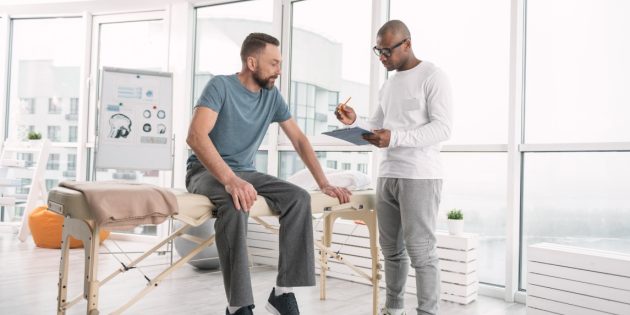Back to School: How Physical Therapy Can Help with Backpack Safety

It’s back-to-season and, as always, parents have a million and one things on their minds. Whether it’s worrying about school supplies, re-establishing routines, adjusting to new schedules, or preparing for first-week jitters, there’s plenty to worry about before the new school year starts. So, forgive us for adding one more thing to your list of priorities – your kids’ backpacks.

Too often, kids go to school with bags that are too heavy and worn improperly. This could lead to a cascade of physical challenges which could hinder your child’s ability to focus on learning. In this blog, we will discuss why backpack safety is so essential, how to get it right, and how physical therapy can help.
The Importance of Backpack Safety
According to University of Utah Health, almost 14,000 children are treated for backpack-related injuries each year. Children, especially the younger ones, won’t always know how to properly wear their backpacks if they aren’t taught. And high school students might think it’s cool to only use one strap to carry their backpacks, not considering the physical effects.
By prioritizing backpack safety, parents can ensure that their children aren’t one of the thousands who develop injuries every year. They also guarantee that their children are able to focus on their schoolwork without distracting pain or discomfort.
Common Backpack Safety Concerns

The consequences of not observing proper backpack safety are far-reaching. They can affect posture, muscles, nerves, energy, mood, and motivation. Here’s a list of the top 10 most common concerns:
- Back Strain: Carrying a heavy backpack incorrectly or for extended periods can strain the muscles and ligaments of the back, leading to pain and discomfort. Poorly distributed weight can exacerbate this injury.
- Shoulder Pain: Carrying a heavy backpack over one shoulder can cause shoulder pain due to uneven weight distribution and strain on the shoulder muscles.
- Neck Pain: An improperly adjusted backpack can cause neck pain and stiffness, especially if the straps are too tight or the backpack is too heavy.
- Spinal Misalignment: Carrying an unbalanced or overloaded backpack can lead to spinal misalignment, potentially causing long-term postural issues.
- Nerve Compression: Prolonged pressure on the shoulders from a heavy backpack can lead to nerve compression, resulting in tingling, numbness, or weakness in the arms and hands.
- Knee and Ankle Strain: Heavy backpacks can alter your gait, leading to increased strain on the knees and ankles, potentially causing injuries like tendonitis or sprains.
- Falls and Trips: A bulky or overloaded backpack can affect balance, leading to an increased risk of falling or tripping, especially on uneven surfaces.
- Muscle Imbalance: Frequent backpack use, especially when carried on one side, can lead to muscle imbalances between the left and right sides of the body.
- Head and Neck Injuries: If a backpack is not properly secured and slips off the shoulders, it can hit the head or neck, causing injuries such as bruises, cuts, or even concussions.
- Strap Abrasions and Bruises: Overly tight or poorly padded straps can cause skin abrasions, blisters, or bruises on the shoulders and chest.
How Physical Therapy Can Help

The first thing a qualified physical therapist can do is help your child choose the right backpack. Each child is unique and backpacks come in a variety of styles, so sometimes special adjustments are necessary.
Physical therapy can also assist with:
Posture – Physical therapists can assess your child’s posture while wearing a backpack and provide tips for observing proper posture at all times.
Muscle Imbalances – If your child uses one strap instead of two it can cause muscle imbalances which physical therapy can correct with exercises targeted at strengthening the weaker side.
Pain treatment – If your child is already in pain, a physical therapist can use stretches, musculoskeletal adjustments, and movement techniques to eliminate pain and ensure that it doesn’t recur.
Personalized Training – Physical therapists can also devise tailored exercises and treatments such as shoulder stabilization, core strengthening, and manual therapy to relieve muscle, joint, and nerve ailments.
Safeguard Your Child’s Health With the Best RGV Physical Therapy
At XO Physical Therapy, we understand how busy the back-to-school season can be. While backpack safety is a priority, it doesn’t have to be your load to bear alone. Our highly trained physical therapists are on standby to help you choose the right backpack for your child, teach the fundamentals of proper posture and backpack safety, and intervene with cutting-edge treatments if pain is already a problem.
Contact us and give your child a safer start to the school year with the best RGV physical therapy.




